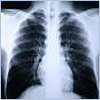
The Department of Laboratory Medicine in the UCSF School of Medicine recently received a Transfusion Biology and Medicine Specialized Center of Clinically Oriented Research (SCCOR) grant from the National Heart, Lung and Blood Institute, part of the National Institutes of Health, one of two awards in the United States.
The award for $10 million over the next five years will allow the UCSF transfusion center to study the leading cause of mortality associated with transfusion, transfusion-related acute lung injury (TRALI), clinically defined as new acute lung injury (ALI) during or within six hours of transfusion.
"Transfusions are very safe now, due to advances in the understanding and detection of transfusion-transmitted diseases. TRALI, however, is poorly understood. The new grant allows basic and clinical investigators to tackle this problem together," said Pearl Toy, principal investigator, chief of the blood bank, and professor of Laboratory Medicine.
To achieve this goal, the grant has four projects:
- • Toy will study the incidence and factors associated with TRALI;
- • Michael Gropper, professor of anesthesia and physiology, will study
mild effects of transfusion on the lung;
- • Michael Matthay, professor of medicine and anesthesia, will study
TRALI in a mouse model; and
- • Clifford Lowell, professor of laboratory medicine will study neutrophil
integrin signaling. These projects are important collaborations with Mayo
Clinic Rochester, Blood Centers of the Pacific, American Red Cross and the
Harvard School of Public Health.
This is the third five-year cycle of a Transfusion Specialized Center of Research grant awarded to UCSF under Principal Investigator Toy. This SCCOR grant differs from the previous two SCOR grants in that it is translational clinically oriented research; hence the added "C."
Physicians and nurses at UCSF and Mount Zion Hospitals and Clinics are encouraged to send a Transfusion Reaction Report to the UCSF Blood Center (415/353-1313) if pulmonary edema and a new hypoxemia are observed during or within six hours after transfusion.
Source: Lisa Cisneros
